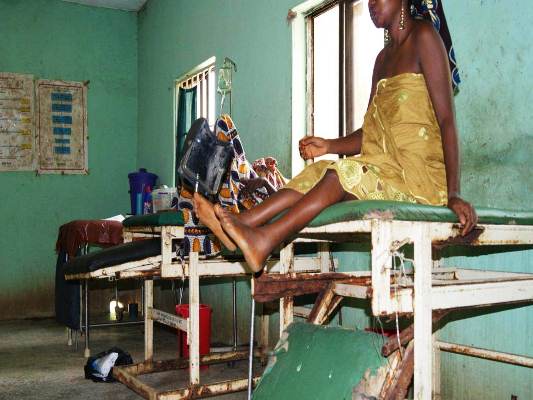As part of the Buhari presidency’s Next Level agenda, there is the proposal and plan for the establishment of a compulsory Health Insurance Scheme where government pays the premium for the poor, according to Vice President Yemi Osinbajo.
Prof Osinbajo spoke Tuesday night, as Guest of Honour, at the Invest Africa forum hosted by the publishers of Africa Report magazine, which held at London’s Royal Society hall.
“On healthcare, to cut the long story short, where we are going is the National Health Insurance. At the moment, we have National Health Insurance, which is not compulsory. So we are looking at compulsory National Health Insurance and we are also looking at how to pay the premium, especially for the poorest.”
Continuing, the VP who took questions from the publishers of Africa Report and members of the audience, explained that the plan is to “have a co-payment arrangement; government will provide payments of premium or free medical care for 40%, which is the poorest segment, and the other 60% will be compulsory co-payments for formal and informal workers.”
According to him, “the resources, the money from the National Health Insurance is the way to fund medical care. At the moment, most people who seek medical help pay out of pockets, obviously, that’s one of the reasons why we have the poor health indices at the moment.
“So we think that health insurance will resource healthcare and help greatly, in not just rewarding our healthcare practitioners, but also in resourcing the hospitals and helping most of our people to get the kind of health care that they may need.
Responding to a question from a member of the audience on the prospects of the Petroleum Industry Bill, the VP said it could still be signed into law, after all the necessary amendments have been made, possibly before the end of the 8th Assembly.
“We hope that the bill will become law before the end of the 8th assembly,” Osinbajo said.
Answering another question from the moderator of the forum, Mr. Patrick Smith, who is the Editor-in-Chief of The Africa Report, on the chances of the APC winning the forthcoming 2019 elections, Prof. Osinbajo said in the 16 years of the PDP rule, the party had nothing tangible to show Nigerians despite earning over $382 billion in oil revenue between 2010-2014.
“The PDP has not cured itself of corruption,” he said and urged Nigerians to ignore the party in the coming elections. Prof Osinbajo then urged the Nigerian electorate not to listen to the party in the 2019 election because they have nothing to offer them.
The VP pointed that since returning to power in 2015, “the All Progressives Congress (APC) led government has invested over N2.7trillion on infrastructural development, at a time the country was earning less.
On the privatisation of some of the public enterprises, the Vice President observed that the exercise, especially in the electricity power sector, was “poorly done” under the PDP previous governments. He referred to a trending video of a 2014 interview where the PDP presidential candidate actually confessed to the failure of the past PDP presidencies in the power sector.
Speaking on the strategy of the government in improving the quality of education in Nigeria, he disclosed that the Federal Government has evolved a plan to partner State Governments to improve the quality of education at both the primary and secondary education levels in the country.
“What we have is a 10-year programme. But we expect to deliver at a much shorter quarter. The main issue really is that funding education is difficult just from the budget.
In Nigeria, State Government funds primary and secondary schools, although the Federal Government has few secondary schools. But the kind of arrangement that we are going to work out now is how the Federal Government will partner with the states to fund secondary education so that the Federal Government is taking a substantial part of it. The partnership when operational, will help in no small measure in delivering quality education in the country,” he stated.
Asked if the growth of private secondary schools and universities in the country were affecting the quality of education in Nigeria, the VP said that competition would at the end, set them apart.
Continuing, he noted that the only challenge with the proliferation of private universities in Nigeria is that content offered by the institutions in most cases, do not match the demand of the society.
As part of the Invest Africa forum, a dinner was held in honour of the Vice President after the Question and Answer session. Earlier today, Wednesday, Prof Osinbajo also received APC leaders and members of a number of Buhari/ Osinbajo 2019 support groups in the United Kingdom.
























